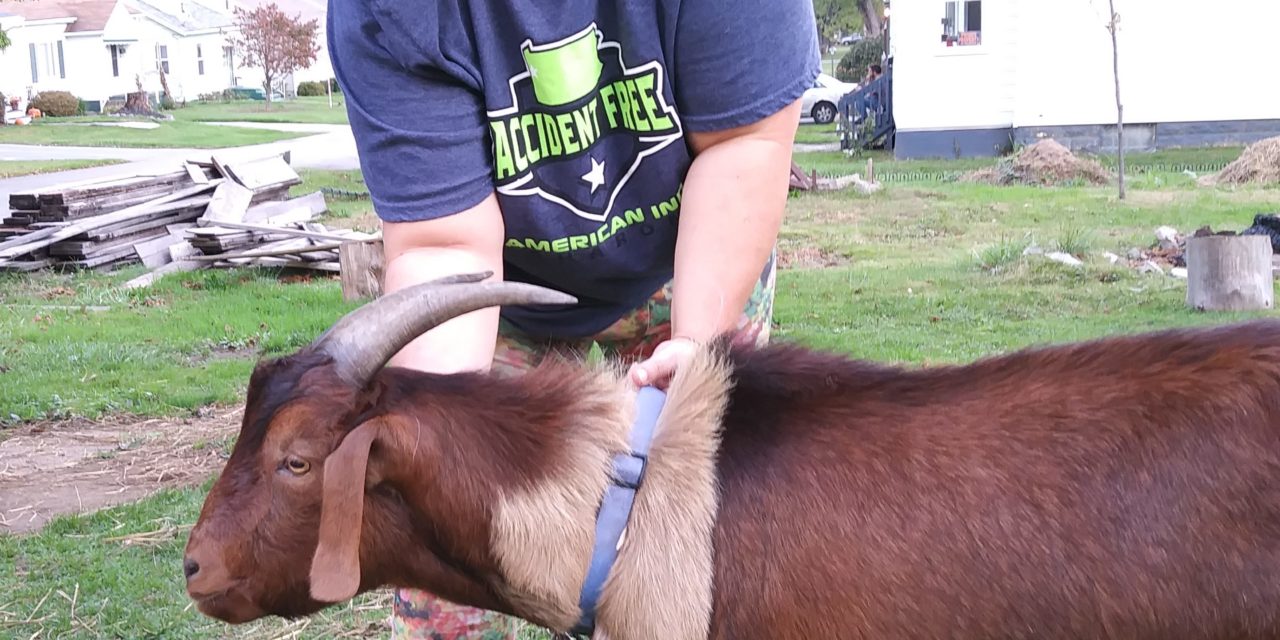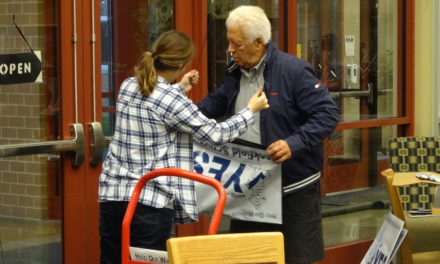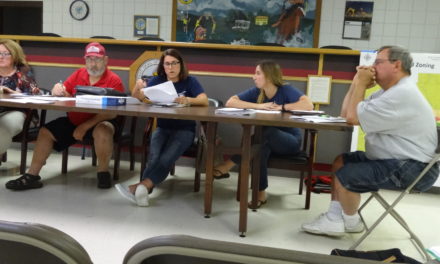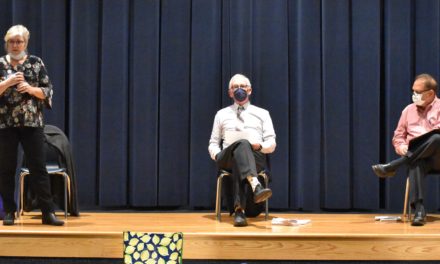The scene: It’s Oct. 11 and Brookfield Township trustees are meeting with members of the township police department. Det. Aaron Kasiewicz asks the trustees what they plan to do if the zoning referendum on the Nov. 7 ballot is voted down.
What is Plan B?, Kasiewicz asks.
“I don’t personally have a B plan,” says Trustee Dion Magestro. “The B plan is going to be much harder. The means are going to be less and less and less.”
* * *
Why do the trustees – all three sitting trustees are in favor of zoning – have so much riding on zoning?
They tout zoning as a way for homeowners and businesses to protect their properties, and a tool for growth.
Zoning, Magestro said, “designates certain land usage areas in the community.”
It sets aside areas for residential, commercial business and industrial development. It sets criteria for non-residential development that abuts residential, and specifies areas for mobile homes and adult businesses.
Resident Brian Reiser, who lives on Second Street, said he believes zoning will attract businesses.
“It’s been sluggish because there is no zoning,” he said.

Fencyk
Ray Ross, who lives on Route 7, north of Brookfield Center, said he sees zoning as a way to help fight the injection wells proposed for near his property.
Todd Fencyk agrees.
“If we had zoning, we would have been able to tell them where they could put their wells,” said the chairman of the township zoning committee.
After that interview, Fencyk posted on the committee’s Facebook page that zoning “might have made a difference” in the injection well question.
On the flip side, the vocal anti-zoning faction looks at zoning as a step toward embracing Big Brother.
“I personally don’t want the government interfering anymore in my life than they have to,” said Phil Williams, who lives on the western end of Warren Sharon Road. “They interfere way too much as it is. I don’t want to give them the power to be able to do anything else. I don’t want the government to tell me, to nit-pick, what I do.”
Magestro counters that by saying that zoning is “hands off” of what exists now.
Although there is criteria for new construction, such as setting setbacks that specify where on a property something can be built, “We’re not trying to tell you what color you should paint your bird house,” Magestro said. “If you want to put landscaping in, you don’t have to come get a permit.”
Yet Ed Morrison, Williams’ neighbor, sees zoning as starting a domino effect that eventually leads to restrictions on bird house color.
“It’s starts here, then it gets big — they all do,” Morrison said. “Before you know it, you can’t have your house that color, or your grass is too tall, you got a little bit of paint that needs touched up. We don’t need that.”
Morrison pooh-poohs the classic zoning argument that it prevents a junkyard or an industry from going in next to your home.
“So what?” he said. “That’d create jobs. They put junkyards in real nice now. That’s not a problem.”
Williams agreed that it’s not a problem whether someone’s grass is tall or a junk car is sitting in someone’s front yard or the paint on the house is peeling – both men mixing property maintenance issues with zoning. Williams also accused the township’s code enforcement officer – who would take on the duties of zoning officer if zoning is approved, the trustees said – of harassing people.
Williams said he thinks business development in the township is hampered by lack of sanitary sewers, not zoning.
The trustees said they understand the importance of expanding infrastructure, including sewers and other utilities, to attract development, and look at zoning as one factor in a larger blueprint for future growth.
“I’m not saying it’s a magic bullet,” Trustee Ron Haun said of zoning. But, it is a piece of the puzzle, he said.
Businesses do not want to make investments in an area where there is no control of their neighbors, Fencyk said.
“If you want to build a million-dollar building, you want to be protected,” Fencyk said.

Barb Taylor stands with Cocoa, the pet goat she keeps in her Masury yard
Barb Taylor, who lives at Broadway Avenue and First Street, said zoning is too restrictive.
“Your property’s basically no longer yours,” she said.
That’s objectionable because she has a goat, a male named Cocoa, in the back yard of her property.
“ I just don’t want someone coming here and saying, ‘You have to get rid of this’ or ‘You can’t do that,’” Taylor said. “I want to put up a fence because of the goat. Am I going to be able to do that or is it going to be regulated?”
Haun said Brookfield’s economy has stagnated since the industrial downturn of the ‘80s, and that has hurt property values and drained the township of its young people, who have gone elsewhere for work.
The towns that surround Brookfield, both in Ohio and Pennsylvania, “They have made somewhat of an economic comeback over the past 30 years,” Haun said. “The funny part is they’re all zoned.”
But, the township’s comprehensive plan, which recommended zoning, showed how the township has declined in population and resources, and predicted the downward trend will continue without action, Haun said.
“One of the pieces we’re missing is regulated land use in our township,” Haun said.” I could take the selfish attitude and say, ‘You’re not going to tell me what to do with my property,’ or I can care about my neighbor.”
The zoning resolution is not perfect, Magestro said, and he asks voters to consider the advantages and disadvantages.
“I’ve been here my whole life,” he said. “I own a lot of property in Brookfield. I’ll be held to those standards as much or more than most people in this community, but I’m OK with that. The good far outweighs the bad.”
Fencyk asked that voters read the 50-page zoning document – it’s on the township’s web site – before making a decision.
“Be informed,” Fencyk said. “Don’t just say, ‘I don’t like zoning because someone said, ‘I don’t like zoning.’ Read the resolution. Come up (to the township building) and see what the map is.”









